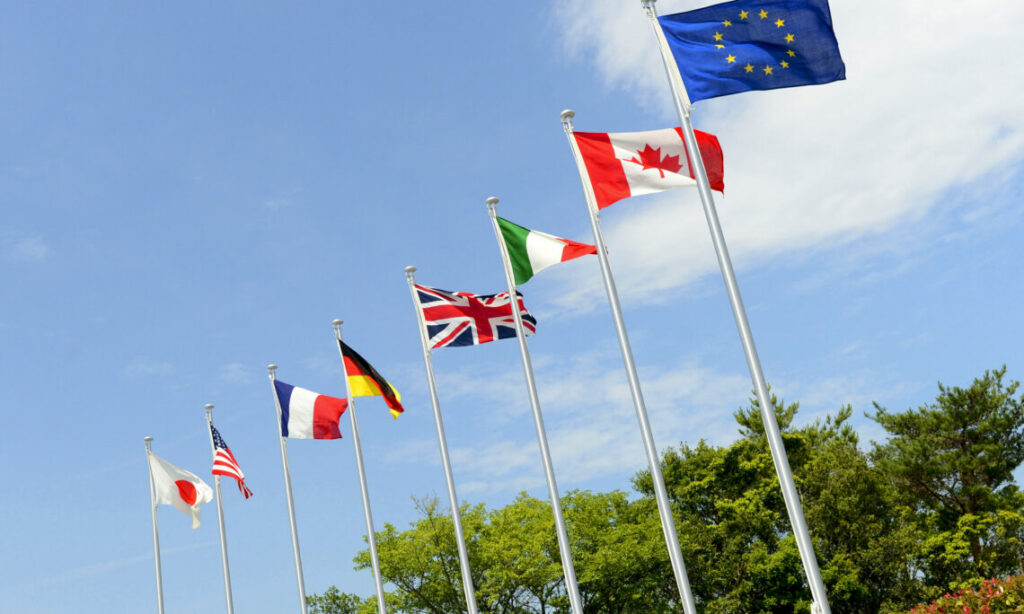The G7 nations, the group of the seven richest industrial countries, will “urgently” introduce a price cap on Russian oil, according to a statement released by ministers on Friday afternoon.
After meeting for the second time this summer, the G7 ministers of the UK, Canada, France, Germany, Italy, Japan and the United States, held a virtual meeting to discuss ways to alleviate skyrocketing energy prices – which also helps Russia sustain its war effort against Ukraine – by implementing a price cap on Russian oil.
The measure aims to cut Russian revenue and its capacity to wage war, while also reducing the effects of the war on global energy prices, a burden that weighs particularly on low and middle-income countries.
The measure will permit service providers to continue selling Russian seaborne oil and petroleum products at the price cap or below: "Today we confirm our intention to implement a comprehensive prohibition of services which enable maritime transportation of Russian-origin crude oil and petroleum products globally," a statement read.
Reaffirming their commitments to phase out Russian oil from domestic markets, G7 finance ministers underlined that the price cap should relieve pressure on global oil prices and support oil-importing countries globally.
Details yet to be confirmed
"The price ceiling will be set on the basis of a series of technical data and will be approved by the whole coalition before it is applied," the seven countries stated. The future prices will be "communicated publicly, in a clear and transparent way."
While many of the key details of the price cap still need to be worked out, G7 leaders invited all countries to provide input for how to operate the price cap and called for global united approach to implement the measure.
Within the EU, which is a 'non-enumerated member,' unanimity among the 27 EU Member States is required to pass the price cap. The G7 aims to align the price cap with the EU's sixth sanctions package.
International support needed
G7 officials admitted that for the measure to be effective, they must receive broad support, including from larger oil consumers such as China and India.
It is doubtful that these nations will support a price cap, despite certain G7 officials claiming that they have shown an interest in buying oil at a cheaper price.
Related News
- Cargo ship carrying grain from Ukraine runs aground in the Bosphorus
- The physical integrity of Zaporizhzhia nuclear plant has been violated, says IAEA
- EU decides to suspend visa facilitation agreement with Russia
Despite its oil exports being reduced, Russia's oil revenue increased by $700m (€698m) from May to June as prices were pushed higher by the war in Ukraine, the International Energy Agency (IEAE) stated last month. Russia has also been plugging its export gap by increasing sales to China and India.

